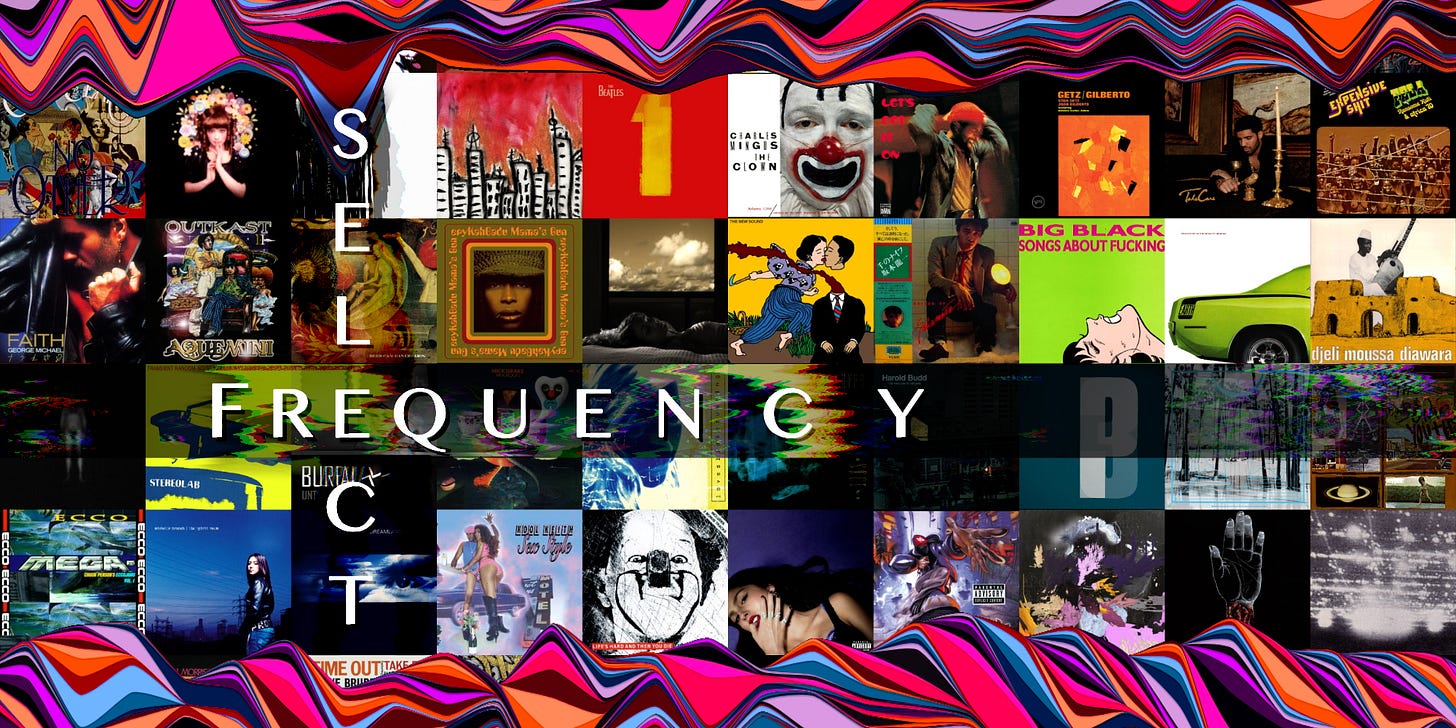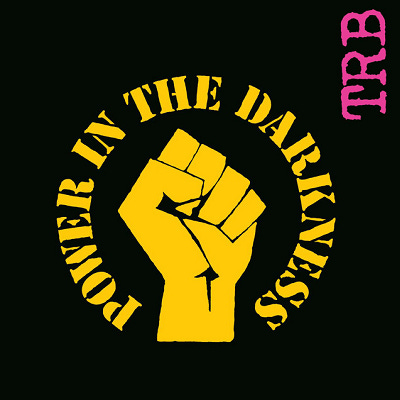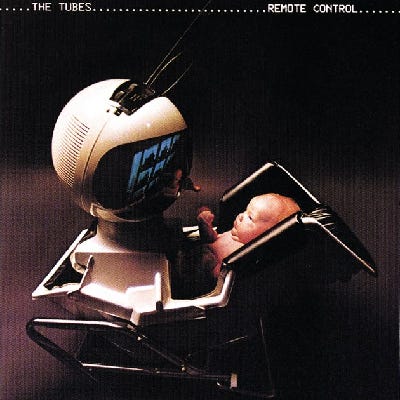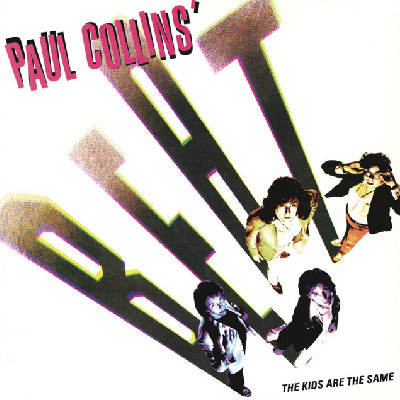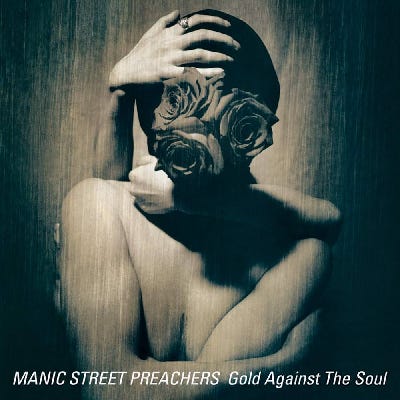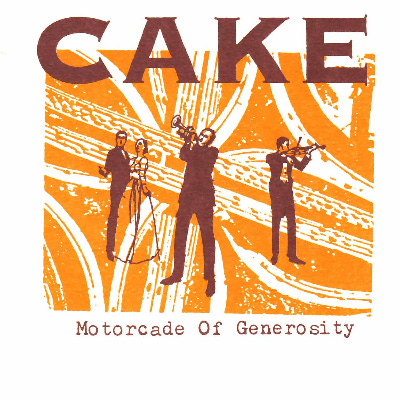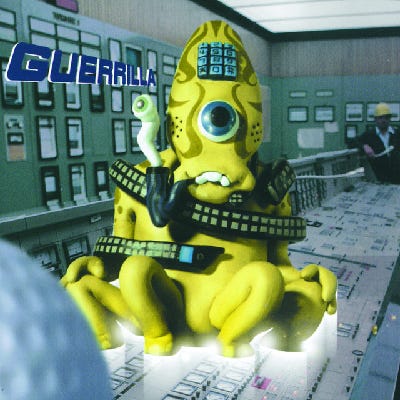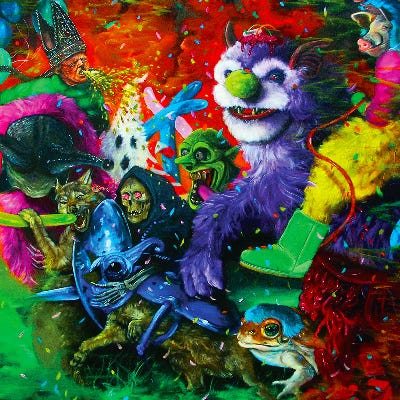Select Frequency #13
Power Pop Mindset roundup '25: A prelude
The purpose of this here Select Frequency (a weekly playlist of ten songs chosen by one of the amazing staff writers here at gatekeep!) is threefold! FOLD THE FIRST: I committed to it (and again waited until the last minute sorry Jesper)! FOLD THE SECOND: 2025 is almost over, and even though time is an illusion I’m itching to compile the fruits of twelve long months of music discovery into one handy and succinct cream-of-the-crop playlist! FOLD THE THIRD: I actually have a big exciting Gatekeep! project to announce: PERMANENT WAVES, a year-long undertaking in which I, each and every day of 2026, will scour the internet for albums released ON THAT DAY in 1980, listen to those albums, jot down a hot take or two, and deliver them to our beautiful subscribers weekly on Mondays! Why 1980? Well, according to the eggheads at rateyourmusic, 1980 is the most power pop-dense year in human history, with a whopping 4.14% of ALL CATALOGED RELEASES from that year bearing the genre as a primary tag! And as one of the internet’s foremost power pop scholars, I simply must know what secrets this year held to make it such fertile soil for Power Pop Mindset. What is Power Pop Mindset, you ask? The following ten songs, all of which I heard for the first time this year, should serve as an adequate crash course- let’s fuckin’ DO THIS!
Yoko Ono, Plastic Ono Band & Something Different - “Angry Young Woman”
Tom Robinson Band - “Ain’t Gonna Take It”
The Tubes - “Turn Me On”
Paul Collins’ Beat - “The Kids Are The Same”
XTC - “Grass”
Manic Street Preachers - “Gold Against the Soul”
Cake - “Rock ‘n’ Roll Lifestyle”
Super Furry Animals - “Citizen’s Band”
Beach Bunny - “Cycles”
Tropical Fuck Storm - “The Future of History”
Yoko Ono, Plastic Ono Band & Something Different - “Angry Young Woman”
From Feeling the Space // 1973 // soft rock
The music press as a whole seems to be pretty well over the thoughtless Yoko Ono hate of the 70s, but enough general-purpose woman-hate is still left over from the broader contemporaneous backlash to second-wave feminism to make Ono’s 1973 girl power opus Feeling the Space an era-defining touchstone in dire need of critical reappraisal, currently languishing at a 3.19/5 rateyourmusic average across a piddling 397 votes. Justice for Feeling the Space! Smash the damn patriarchy! The lyrics to “Angry Young Woman” are a vivid time-capsule clawing its way out of the suffocating sexism of the 50s and early 60s. The song, like the rest of the album, lands with the verve and optimism typical for this period of the women’s rights movement- a new world just around the corner, a comforting assurance that, at the very least, the song’s protagonist will find freedom in leaving behind her husband and children. There’s a pervasive melancholy here too, though, in the image of a woman who has no choice but to abandon her life of domestic servitude, yet remains haunted by it, inescapably shaped by it— all she has to her name is memories of her previous life, some typing from the college where she met her husband. It’s all too easy to imagine her winding up languishing as a corporate secretary or receptionist, trapped again under a different man’s boot. There’s no way back, so just keep walking. The only way out is through. Fuckin’ mindset, Yoko.
Tom Robinson Band - “Ain’t Gonna Take It”
From Power in the Darkness // 1978 // punk rock
If I have to make a guess ahead of time as to what made 1980 such a big year for power pop, I might have to start with the simple fact of the year representing the culmination of the Jimmy Carter era in America, a time before the spectre of neoconservatism fully descended upon us. It wasn’t so long ago, really, but the way the music of the late 70s sparkles with a seemingly limitless horizon of social progress is invigorating to look back on, especially when it’s so palpable just what was at stake, just how wrong things were about to go. Tom Robinson, one of the forgotten heroes of punk’s first wave, had as activist cred as damn near anyone in the scene at the time, volunteering at the Gay Switchboard offering legal and medical advice to British LGBT people, distributing pamphlets for Spare Rib and The National Abortion Campaign at his concerts, and helping to organize Rock Against Racism to oppose Britain’s National Front alongside Steel Pulse and X-Ray Spex. His band’s 1978 debut Power in the Darkness is an indispensable document of true musical activism, staring down the barrel of the Thatcher years with a defiant sneer and two middle fingers raised. Robinson’s impassioned pleas for solidarity on album highlight “Ain’t Gonna Take It” have scarcely aged a day: next time you see pointless backbiting and self-righteous purity testing in your local org, hit ‘em with this. Brothers and sisters, what have we done? / we’re fighting each other now, instead of the front / We gotta get it together, there’s trouble to come / and the odds are against us, about twenty to one!
The Tubes - “Turn Me On”
From Remote Control // 1979 // New Wave
In a 1978 interview, Tubes frontman Fee Waybill described his and his bandmates’ upbringing in Phoenix, Arizona thusly: “You had to watch TV there, y’see, because it was so oppressively hot, you were in the house watching TV veritably all day long… you had to watch every new thing they put at you, and this went on for fifteen years, y’know. Imagine what that does to a person— they grow up and they’re totally nuts.” Across the second half of the 1970s, Waybill and his prog-poppin’, sleaze-rockin’ cohorts put forth a kaleidoscopic, viciously irreverent view of an American cultural landscape fractured by the power of television, culminating in their Todd Rundgren-produced fourth LP Remote Control, a concept album that plays out like Videodrome by way of Tommy. Sounds like a disaster on paper (what good concept album doesn’t?), and it certainly didn’t do the band’s pocketbooks any favors, failing to recoup the costs of their ever-extravagant stage show and setting them on a dark path to 80s AOR selloutery, but it’s my steadfast belief that time has vindicated Remote Control, most of all its ludicrously propulsive opener “Turn Me On”. This thing is pure synth-fueled momentum, with Waybill’s electric vocal performance providing such an endearingly goofy theater-kid streak that it becomes outright heartbreaking to hear the protagonist’s joie de vivre being sapped away by the boob tube over the ensuing thirty-seven minutes. When Rundgren’s mix opens up for the prechorus and Waybill hollers “let me look you in the eye ‘til the spell comes over me”, you can nearly see the whole rise and fall of the “Kill Your Television” era.
Paul Collins’ Beat - “The Kids Are The Same”
From The Kids Are The Same // 1982 // power pop
Greg Shaw is truly one of the great behind-the-scenes power players of power pop, a superfan who toiled through the whole entire 70s on a zine called Bomp! that championed such acts as The Raspberries and Dwight Twilley. When punk started to bubble up in the second half of the decade, Shaw was quick to hail it as the second coming of his preferred brand of punchy, catchy guitar pop, and started the Bomp! Records label with his wife Suzy. One of their earliest signings was a short-lived San Francisco act called The Nerves who, despite splitting up shortly after Bomp! put out their 7-minute debut EP, produced three highly influential figures in power pop: frontman Jack Lee penned “Hanging On the Telephone”, soon to be a smash hit for Blondie, bassist Peter Case went on to front California club-circuit stalwarts The Plimsouls, and drummer Paul Collins started a little band called the Beat (not to be confused with the 2-tone band known stateside as The English Beat). Paul Collins’ Beat exemplifies one of power pop’s most enduring career arcs: their debut album was lauded by critics as a marvel of succinct, energetic songwriting, but sales were sluggish, the band went through drummers faster than Spinal Tap, and they consequently never quite escaped also-ran status, stuck in opening slots on tour with bigger personalities like The Jam. On the title track of The Beat’s second album, you can hear Collins starting to get defensive, even resentful: Well, I don’t care too much for politics, I don’t like to read the news, cuz my backyard still looks the same to me, the song opens, matching his genre’s aesthetic conservatism to an equally small-minded worldview; the chorus almost seems to insist that all this newfangled new wave business is just a fad distracting the youth from his rockin’ jams, which they’re surely biologically hardwired to enjoy. By the second verse, though, a deeper honesty creeps in: don’t even wanna go to school, cuz they can’t teach me about anything, cuz I don’t even know who the hell I am. There’s a void in Power Pop Mindset that artists have been trying to fill with leftover Beatlemania for decades on end, and for all the timeless songwriting lessons it’s wrung from the 60s, even today it still seems to protest: the kids are the same, yeah the kids are the same, everywhere I go.
XTC - “Grass”
From Skylarking // 1986 // neo-psychedelia
2025 was the year I finally started to “get” XTC. I spent far too long holding the band at arms’ length on the basis of their highly acclaimed 1979 album Drums and Wires, a tangle of cartoonish shouting and herky-jerky rhythms which I found tremendously annoying and unpleasant at first blush back when I picked it up on CD at a thrift store in uhhhh 2019ish? At any rate, their zippy debut White Music offered enough of an inkling that Andy Partridge and Colin Moulding were actually up to something quite worthwhile with all their cheeky zaniness, but even the intriguing turn their music took after Partridge’s 1982 nervous breakdown and the band’s subsequent retreat from the touring circuit did not prepare me for the utterly gorgeous psychedelic wonderland of 1986’s Todd Rundgren-produced Skylarking. Moulding (too often overshadowed by Partridge, for my money) turns in a wonderfully nostalgic lyric and melody, a rose-tinted memory of youthful romance in the park, but Rundgren’s swooning string arrangement is what really makes the track sing, lending a sense of surreality that foregrounds the double-entendre of the title lyric. Insist otherwise all you want, fellas: this right here is primo doobie-smokin’ musick!
Manic Street Preachers - “Gold Against The Soul”
From Gold Against the Soul // 1993 // hard rock
The Manic Street Preachers’ legacy will forever be defined by the 1995 disappearance of their charismatic and erratic frontman Richey Edwards, and by extension the two albums most closely tied to his disappearance, 1994’s The Holy Bible and 1996’s Everything Must Go. The album that made me a proper fan of the band, however, is actually their 1993 sophomore LP Gold Against the Soul. After loudly proclaiming that their 1992 debut Generation Terrorists would be their ONLY album, a work of such bomb-throwing revolutionary magnitude that its release would doubtlessly plunge the UK and then the world into a glorious anarchist uprising or something, the Manics came face to face with the reality that seventy-three minutes of glam rock is not actually capable of doing all that. So, Gold Against the Soul was their reluctant capitulation to the times, influenced by industrial, grunge, and the nascent britpop movement for a more cynical and personal take on the band’s unabashed radical politics. The closer and title track is as unsubtle as Edwards ever was, a tirade against complacent imperial consumerism and the ways power strips us of our humanity. The whole band seems to seethe and strain against Sean Moore’s programmed drum loop, James Bradfield snarling that “rock and roll has a conscience / it supplies convenience” like he’s trying to tear the whole genre down around him. The Manics made plenty of good music after this, but their warning was as much to themselves as to us; gold did erode their souls, and likely destroyed Edwards’. They would never be quite this palpably, desperately furious again.
Cake - “Rock ‘n’ Roll Lifestyle”
From Motorcade of Generosity // 1994 // power pop
From despair to where, you ask? To ironic detachment, of course, and right back again, around and around it goes! “Rock ‘n’ Roll Lifestyle” was as much a reaction to the Generation Terrorists mindset as Gold Against the Soul was, the main difference being that John McCrea had absolutely no revolutionary pretensions whatsoever, and had a wealth of ire for the rockers who did— he saw music as a service occupation. Fun fact: his band Cake was actually not named for the food, but rather for “something that cakes onto your shoe and is just sort of there until you get rid of it”. Applying a genre label to Cake has always been a rather vexing task for music writers; they are “rock” only insofar as rock was what caked onto their shoes. Case in point: their debut single “Rock ‘n’ Roll Lifestyle”, a four-minute eye-roll at what was, by 1994, truly a rebellion-industrial complex, but which nonetheless gets a whole lot of its juice from Greg Brown’s guitar noodling going toe-to-toe with McCrea for deadpan snark. The song was a minor hit, but unlike “The Distance” or “Short Skirt/Long Jacket”, it was too caustic, too (self) critical to become an alt-radio mainstay. Fans pay for souvenirs, artists pay for equipment, and cheap foreign labor makes it all nearly frictionless. “Excess ain’t rebellion / you’re drinkin’ what they’re sellin‘?” Boy howdy, certainly a dim view of the transformative power of art, but hardly an unrealistic one. After all, nothing makes for poor service like navel-gazing hedonism. Get over yourselves, you’ve got a job to do.
Super Furry Animals - “Citizen’s Band”
From Guerilla // 1999 // neo-psychedelia
When the Beatles released Sgt. Pepper’s Lonely Hearts Club Band, Richard Goldstein was not impressed. Writing for The New York Times, he dismissed it as “an album of special effects, dazzling but ultimately fraudulent”. Goldstein paid dearly for his failure to recognize Sgt. Pepper’s as the watershed moment it was, but his is a take that’s stuck around in some capacity in the decades since; today, even my Beatle-loving ass might actually agree with him. It’s that quote, “an album of special effects,” that I couldn’t get out of my head on my first few listens to Super Furry Animals’ ill-fated 1999 pop pivot Guerrilla, an album chock-full of sparkly hi-tech electronic sounds married to half-baked ditties and dopey lyrics that frontman Gruff Rhys disavowed as “disposable”. I get a sense that Rhys was afraid he’d sound paranoid or preachy if he fully committed to his fears about the impact of electronic communication, but hey, nobody likes a half-assed activist. The album is an objective failure, a commercial bomb and an obviously compromised artistic vision, but you’d be hard-pressed to call it bland or uncompelling at any point; much like Sgt. Pepper’s, it’s managed to worm its way into my heart not in spite of, but because of its idiosyncratic flaws. For a perfect example, just look at the sweet, winsome singalong “Citizen’s Band”, a perfect opener hidden as track zero in the pregap of the initial CD release, because it’s the late 90s, and why make your album great when you can make it interactive?? Rhys’s ever-beatific voice illuminates the song like a sunbeam or a glowing LED panel: so many ways to communi…cate! he sings, awestruck at how interconnected the world is becoming. Really, who could blame him for a little option paralysis?
Beach Bunny - “Cycles”
From Tunnel Vision // 2025 // synth pop
Time for my obligatory power-pop-isn’t-dead-in-current-year pick! If you’re still pining for more retro melodic pop after that new Beths albums (already covered by Gatekeep! HERE), well, I’m sorry to report that Beach Bunny’s Tunnel Vision is not quite as much to my taste, just a bit too bubblegummy and self-pitying— with the exception of its lovely closer “Cycles”, which turns both of those weaknesses into strengths through the magic of a featherweight synth choogle evoking The Cars at their Heartbeat City best. Frontwoman Lili Trifilio deftly threads the needle of bubbly American Psycho emptiness (acting like somebody / but inside you feel dead) with a glimmer of yearning for something more underneath, with her emo-tinged warble lending the appropriate shading of angst for the endless grind of keeping up appearances.
Tropical Fuck Storm - “The Future of History”
From A Laughing Death in Meatspace // 2018 // neo-psychedelia
We close this edition of Select Frequency with the most tenuously power pop tune of the bunch: Tropical Fuck Storm are really only power pop only insofar as they are deeply invested in squaring the circle between garage rock and psychedelia. But where power pop is nearly always clean-cut, melodically bright, and nigh-psychotically upbeat, TFS spins a gnarled, murky web of staggering, slurring beats and discordant blurts of guitar and keys to soundtrack a horrific, inevitable dystopia. There were other songs I listened to more this year (including a couple featured in this very article), but no song crossed my mind more than “The Future of History”. Every time a piss-colored AI video of MAGA Jesus besmirched my feed, every time a coworker or internet acquaintance shrugged off a world news headline with an indifference that can only come from true nihilism, that sinking feeling always came to the click-clacking rhythm of Deep Blue rendering Garry Kasparov obsolete. Machines don’t cry, they don’t concede. We are commanded by the monsters we have brought to bear. I used to worry one day they’d have feelings too / but these days I’m more worried that that is not true. NO ONE IN THE FUTURE PLAYS CHESS OR CARES. Maybe IBM is gonna make our nightmares come true, but hey, we can still jam out in the meantime, and feel a little less crazy in the process…



